38 which feature on this diagram is a cirque?
Which feature on this diagram is a cirque? A. 1, the circular depression at the head of the valley. B. 2, a lake in the upper valley. C.
This is usually a glacier lake that is formed from the ice melting and the ice tends to look like prayer beads due to their striped appearance from the merging of the cirque glaciers into the single valley. F. Cirques. This is the bowl shaped hollow part that is found on the higher side up on the mountain. Reference. One Geology, (2020). Alpine ...
Ben Gen 10 is a movie-length special of Ben 10. It serves as a crossover with Generator Rex. When Ben meets a young Generator Rex on the run from a hostile Providence, he must work through a the still alive series of misunderstandings, and defeat the dark wizard Hex in order to save the world from a malfunctioning Omnitrix infecting the world's human population with alien …
Which feature on this diagram is a cirque?
Amazing 3D globes These 3D globes give a completely different perspective on population statistics. Each globe gives you a 3D view of the Earth where each country is colour-coded based on the population statistic you are viewing.
Moraines- Moraines are formed by the build up of glacial till that isexposed to the elements after a glacier has retreated.This is a medial moraine, meaning that it is formed when two different glaciers merge and lateral moraines (formed on the sides of a glacier) combine to form a moraine in the middle of the combined glacier.
Which feature on this diagram is a cirque? 1: The circular depression at the head of the valley. Which feature on this diagram is an arete? 3: A steep ridge. What is the feature numbered 2 on this photograph? Medial moraine *know moraines. Which of the features labeled on this figure is a kettle?
Which feature on this diagram is a cirque?.
Calum Campbell, Ian Geddes · 2019 · Study Aids... of these features and link these to an annotated diagram or diagrams ... cirque. or. cwm. These concave amphitheatre-like hollows (ranging from ...
Question: A B F E G Match the term for the glacial feature with the letter from the diagram. Cirque Glacier 1. A Zone of Ablation 2. B ✓ Medial Moraine 3.
Which feature on this diagram is a cirque? 1, the circular depression at the head of the valley. Today, which land area in the Northern Hemisphere is largely covered by an ice sheet? Greenland. Which of the features labeled on this figure is a drumlin? C.
Cirque stairway: a sequence of cirques; U-shaped, or trough, valley: U-shaped valleys are created by mountain glaciers. When filled with ocean water so as to create an inlet, these valleys are called fjords. Arête: spiky high land between two glaciers, if the glacial action erodes through, a spillway (or col) forms; Valley step: an abrupt change in the longitudinal slope of a glacial …
A roche moutonée is another type of elongated erosional feature that has a steep and sometimes jagged down-ice end (Figure 16.25, left). On a smaller scale still, glacial grooves (tens of centimetres to metres wide) and glacial striae (millimetres to centimetres wide) are created by fragments of rock embedded in the ice at the base of a glacier (Figure 16.25, left and right).
Nicholas Stephens · 1990 · PhotographyDuring the Loch Lomond Stadial , this cirque was occupied by glacier ice together with more than 30 other cirque glaciers in Snowdonia ( see diagram below ) ...
Which feature forms where two lateral moraines merge? end moraine medial moraine ground moraines eskers. Which of the following is a glacial deposit and not a glacial erosional feature? a cirque a moraine an arete a horn. Large, streamlined hills of till and bedrock that form in come areas subjected to continental glaciation are called ...
06.06.2018 · A diagram showing different types of landforms. Although glaciers cover only a small part of the Earth’s surface today and are constantly retreating due to climate change, the situation was very different in the past. Scientists believe that there were times when nearly the entire surface of the Earth was under ice and snow. The glacial erosional and depositional features …
The diagram provided below shows a series of mountain glaciers. Identify the specific type of glacial ice by dragging the labels to the correct target. cirque glacier, ice cap, piedmont glacier, valley glacier. Glacial erosion can produce a number of features of mountain landscapes. Label the image to show some of these features. arete, cirque, hanging valley, horn, truncated spur, …
Which feature on the above diagram is a cirque? Which feature on the above diagram is an arête? 3 Am 4. Show transcribed image text ...
cirque glacier. When the upper surface of the open ocean freezes, the feature produced is called sea ice, composed mostly of fresh water. The exposed bedrock in the background of the figure below, to the right, formed as particularly resistant rock and/or thin ice left the rock above the ice surface An interglacial period is
Match the characteristic/feature of a glacier or glacial area with its description Grooves and streaks . These are created as sediment trapped in the glacier is being carried by the flow. Match the characteristic/feature of a glacier or glacial area with its description Steep, exposed slopes. Snow and ice slide downhill and are not allowed to pile up. The ice ages: are so called …
Question 2 1 / 1 pts Identify the feature at #38 on the accompanying diagram that has a characteristic of a lake in a cirque. pater noster arete tarn lake horn peak hanging valley Question 3 1 / 1 pts The boundary between the zone of ablation and the zone of accumulation is called equilibrium line moraine ablation zone terminus
Which feature on this diagram is a cirque? A. 1, the circular depression at the head of the valley. B. 2, a lake in the upper valley.
Which feature on this diagram is a cirque? A. 1, the circular depression at the head of the valley B. 2, a lake in the upper valley C. 3, a steep ridge D. 4, a valley that is above the level of the main valley
• Lickety Split • Mutiny for the Bounty • The Chupaca-bro • Buggy Out • Introducing Kevin 11 • Four by Four • Cirque-Us • Forever Road • The Bentathlon • Beware the Scare-Crow • The Night Ben Tennyson Came to Town • The Claws of the Cat • Prey or Play • And Xingo Was His Name-O • Fear in the Family • Roundabout ...
Which feature on this diagram is a cirque? A. 1, the circular depression at the head of the valley. B. 2, a lake in the upper valley. C. 3, a steep ridge. D. 4, a valley that is above the level of the main valley
Cirque c. Hanging valley d. V-shaped valley ... Which statement correctly describes the landscape shown in the diagram. a. A is a lateral moraine, B is a medial moraine, and C is a terminal moraine. ... Which features form by deposition from glacial meltwater? a. Kettles, kames, and eskers b. Moraines, erratics, and drumlins c. Tarns, hanging ...
The term esker is derived from the Irish word eiscir (Old Irish: escir), which means "ridge or elevation, especially one separating two plains or depressed surfaces". The Irish word was and is used particularly to describe long sinuous ridges, which are now known to be deposits of fluvio-glacial material. The best-known example of such an eiscir is the Eiscir Riada, which runs …
The concave shape of a glacial cirque is open on the downhill side, while the cupped section is generally steep. Cliff-like slopes, down which ice and glaciated ...
Which feature on this diagram is a cirque? 1, the circular depression at the head of the valley. Which of the features labeled on this figure is a kettle? B. What is the feature numbered 1 in the upper part of this figure? cirque. What is the feature numbered 4 in the lower right of this figure?

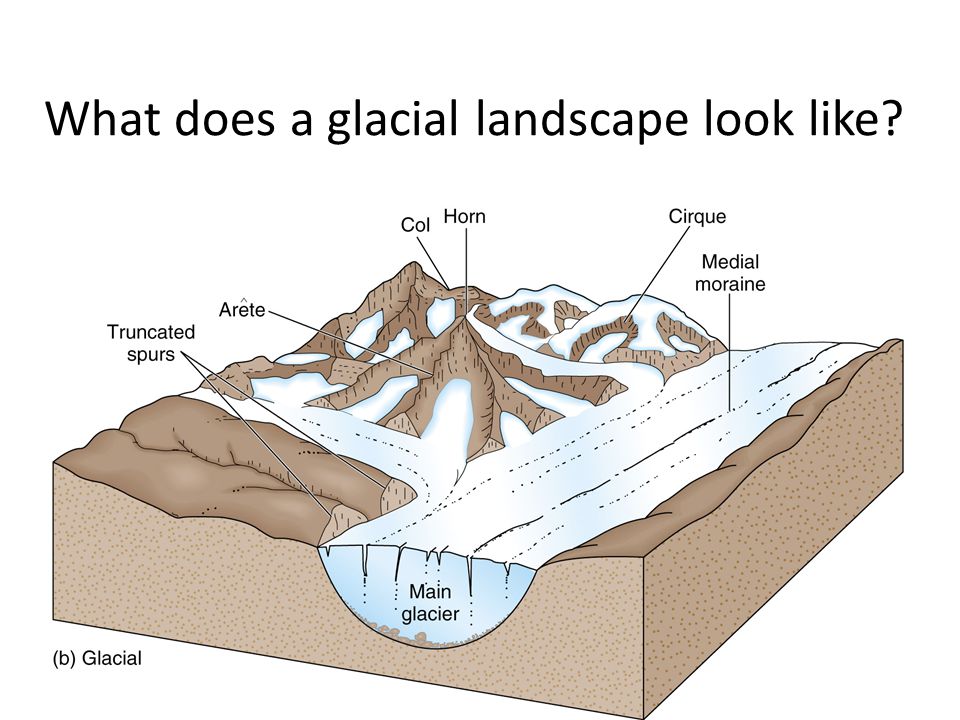

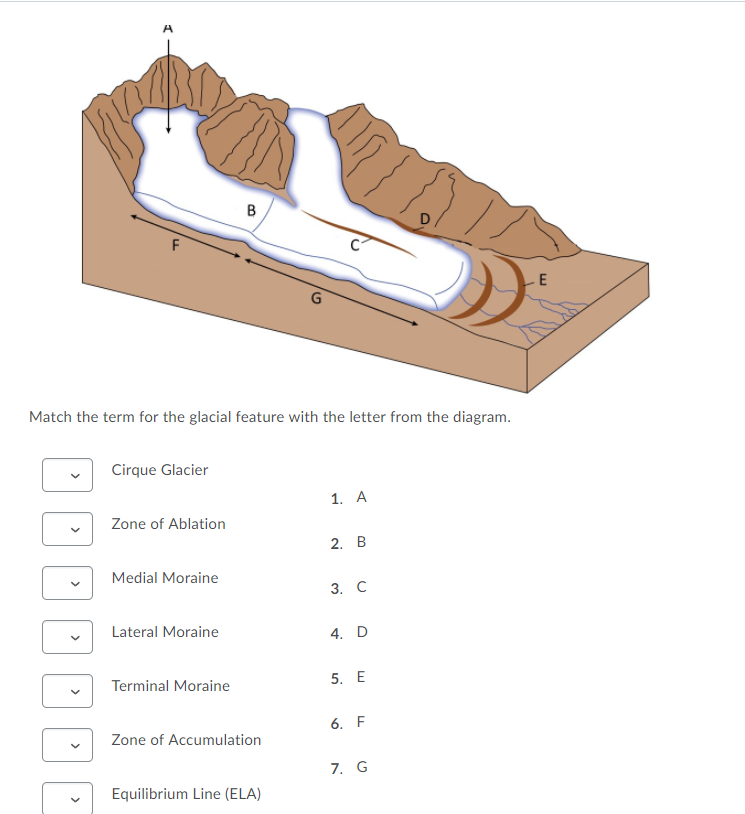

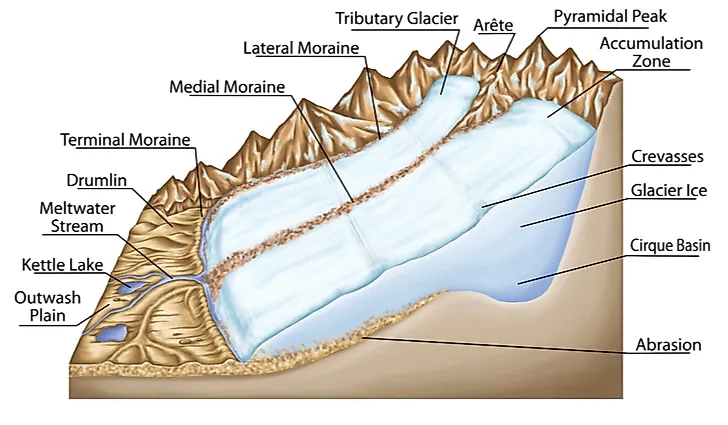


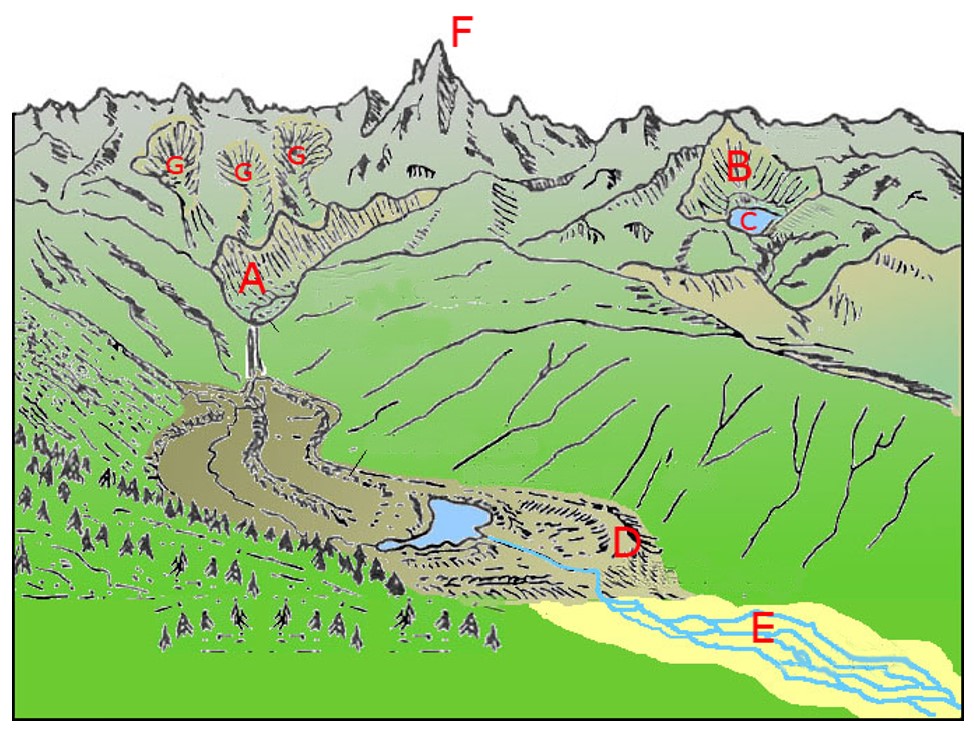
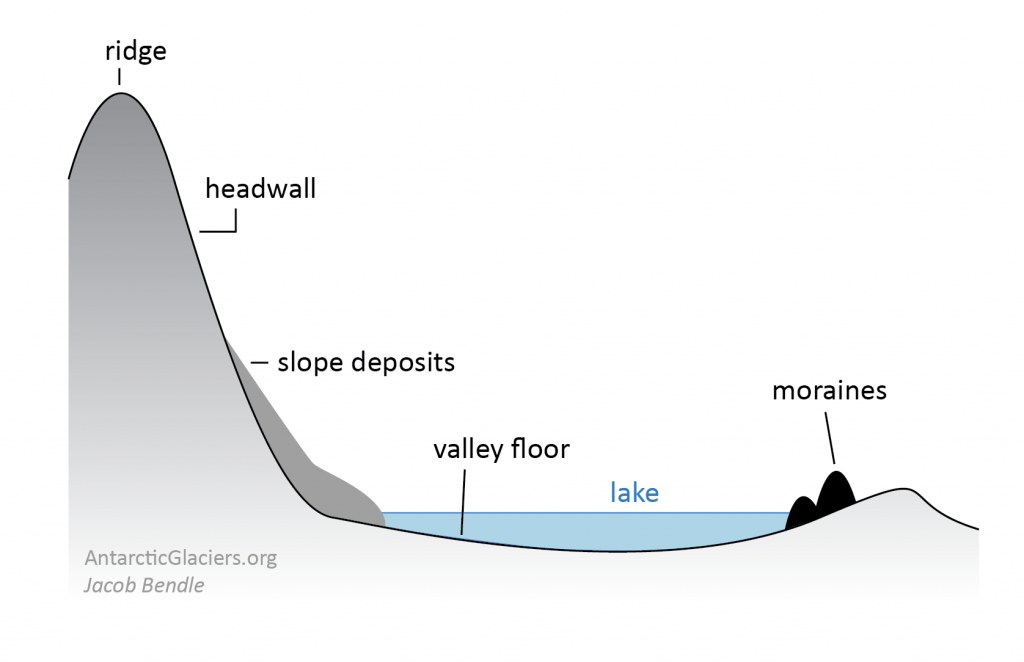
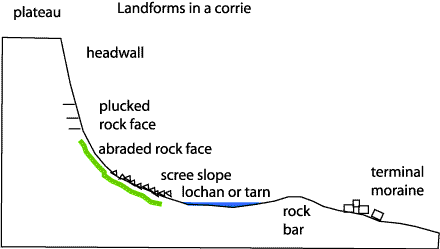



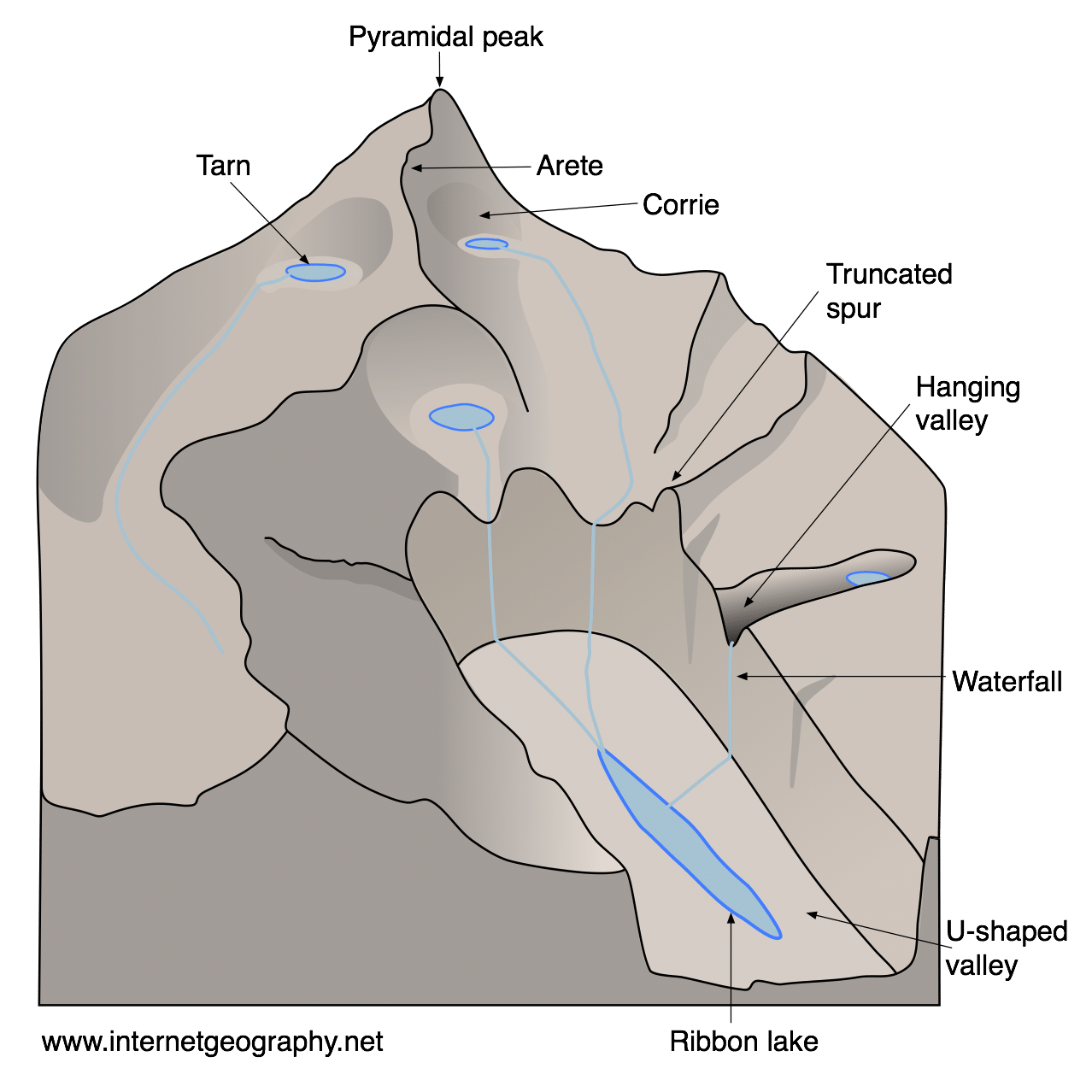
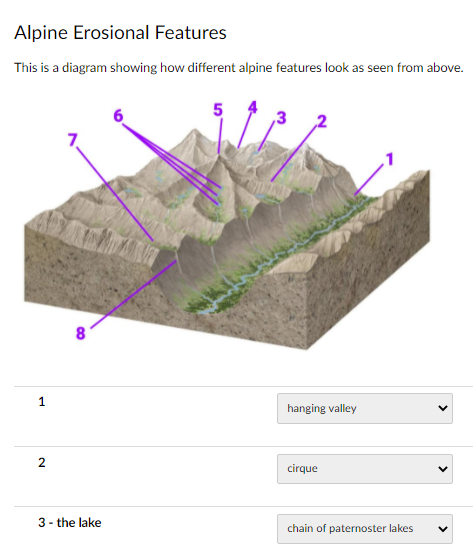
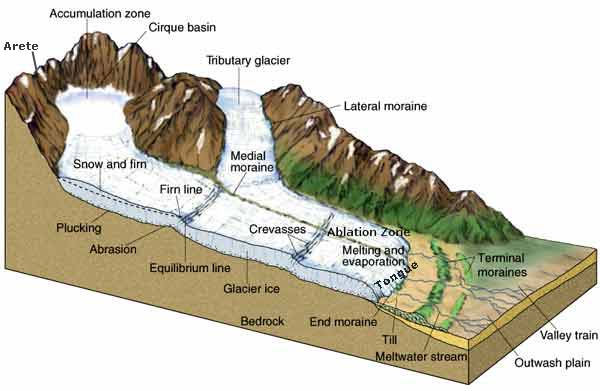


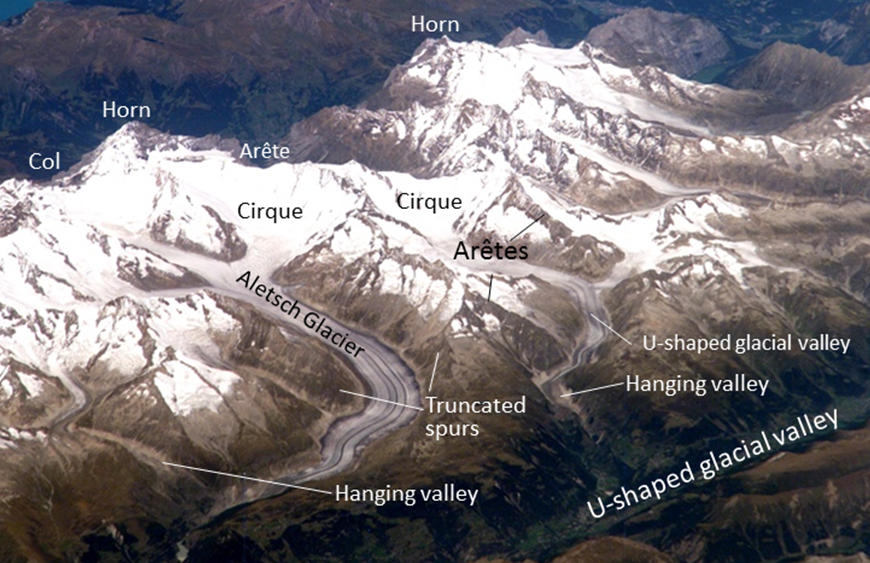



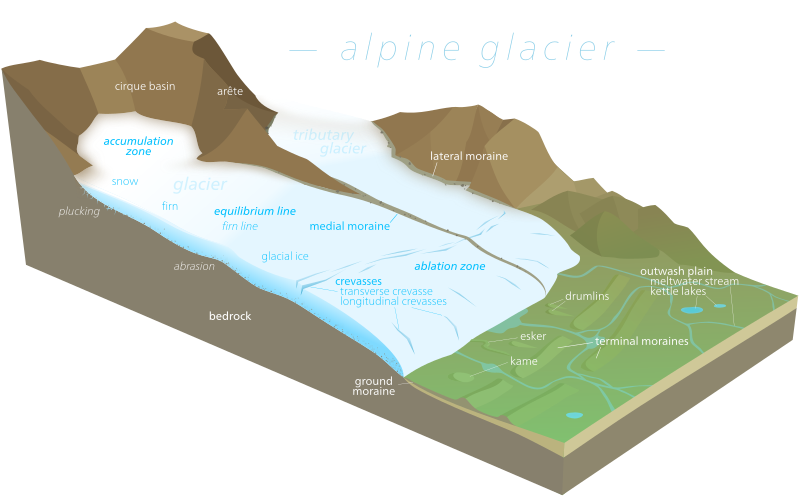

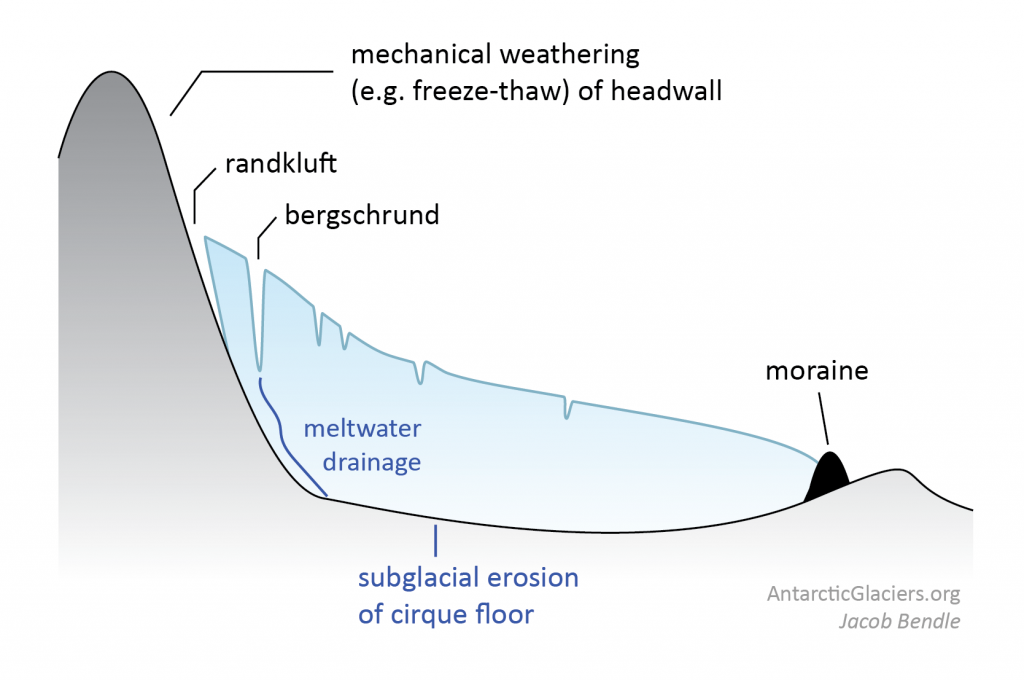
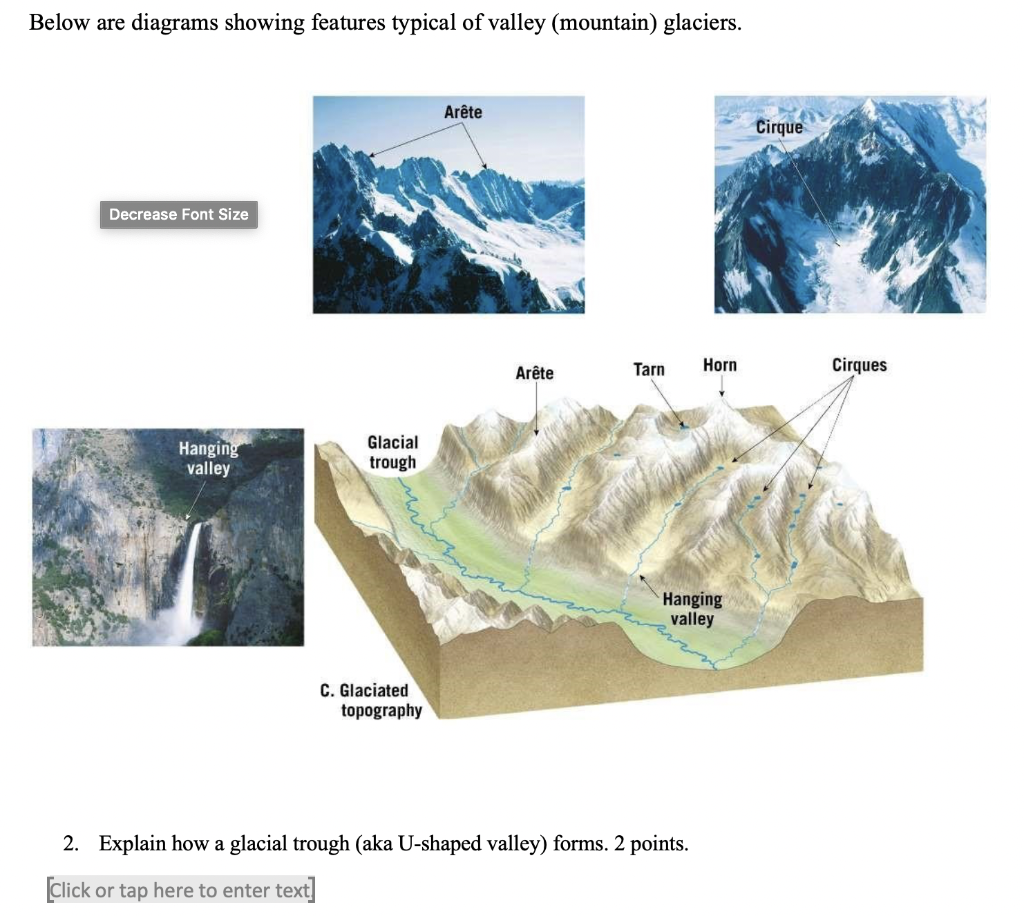


Great Article! In case anyone is facing issues while preparing for the UPSC Civil Service exam, Visit RauIAS.
ReplyDelete